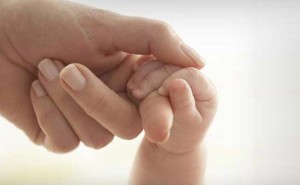The health minister has banned surrogate pregnancy arrangements in the country, putting the brakes on what appeared to be a quickly expanding—if controversial—industry. The move comes just days after the justice minister called for the practice to be outlawed.
Addressing representatives of Cambodia’s medical community during a meeting at the Health Ministry on Monday, Health Minister Mam Bunheng announced a ban on surrogacy, according to staff from a Phnom Penh fertility clinic who were present.
The ban is among other measures outlined in a new prakas on the management of blood, ovum, marrow and human cells that Mr. Bunheng approved last week.
“Surrogacy, one of a set of services to have a baby by assisted reproductive technology, is completely banned,” says the proclamation, dated October 24.
It also bans commercial sperm donation and requires clinics and specialist doctors providing in vitro fertilization services to receive permission from the ministry.
Experts estimate up to 50 surrogacy providers and brokers are operating in Cambodia, many of which moved their businesses here in response to other countries in Asia—including India, Nepal and Thailand—either tightening regulations around the practice or banning it outright.
It remained unclear if surrogacy providers would be granted a grace period to make alternate arrangements, what measures would be taken to enforce compliance, and the implications for women who are currently pregnant—and would-be parents on the other side of the transaction.
Spokesmen for the Health Ministry and Justice Ministry could not be reached on Wednesday.
In August, the Ministry of Women’s Affairs met with members of government and health organizations to discuss its response to reports that surrogacy agents were flocking to the country. Late last month, Justice Minister Ang Vong Vathana called for a ban on surrogacy, describing it as a form of human “trading.”
The head of a surrogacy provider operating in Cambodia, who asked not to be named out of concern that his company would be targeted by authorities, said he was not aware of the prakas.
“We are only hoping [Mr. Bunheng] allows a grace period for the intended parents to seek other alternatives for their unborn children,” he said in an email.
“If we can’t find a legal way to help the pregnant surrogates ourselves, then we will instruct the intended parents to ask their embassy for help and stand by ready to assist.”
Sam Everingham, director of Australia-based advocacy group Families Through Surrogacy, said he was concerned officials had rushed to impose a ban without properly investigating the sector.
“Every country has the right to determine what medical services it provides to foreign citizens,” Mr. Everingham said in an email. “I am, however, concerned that such a ban has been introduced without any reasonable enquiry by Cambodian authorities into the local industry, especially the implications for surrogates.”






